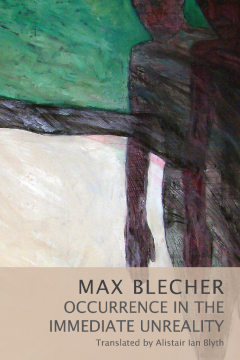
Additional Information
Book Details
Abstract
Max Blecher’s work of autobiographical fiction employs poetic prose to explore his ideas of self-identity and the body. An intimate and frank account, Occurrence in the Immediate Unreality is unsettling as it examines and lays bare what Blecher terms ‘the crisis of unreality’ in relation to the human condition and details the ‘bizarre adventure of being a man’ from the perspective of Blecher who never fully experienced manhood owing to his contraction of tuberculosis in 1928. What is offered to the reader then, is Blecher’s experiences of being a physically infirm adolescent experiencing the simultaneous struggle of social isolation and sexual awakening.
Max Blecher (1909 – 1938), poet and prose writer, offers a harrowing account of the “bizarre adventure of being a man” that draws upon his experience, in 1928, of being diagnosed with tuberculosis of the spine. He was treated in various sanatoria in France, Switzerland and Romania, but to no avail. Engagement with existentialist philosophy led to an interest in Surrealism. Without joining any particular grouping he corresponded with, among others, Geo Bogza, Mihail Sebastian, André Breton, André Gide, Martin Heidegger and Ilarie Voronca, and sporadically collaborated with the Paris-based magazines Le Surréalisme au service de la révolution and Les Feuillets inutiles.
What makes Max Blecher akin to Kafka, Bruno Schulz or Robert Walser is above all the faculty of inhabiting misfortune, of accepting it as a condition of ongoing life. Before the disease manifests itself, he observes a systematic aggression against him on the part of the universe. Things emerge from their neutrality and besiege him, seeking to fascinate or terrorise him.
Ovid Crohmălniceanu
